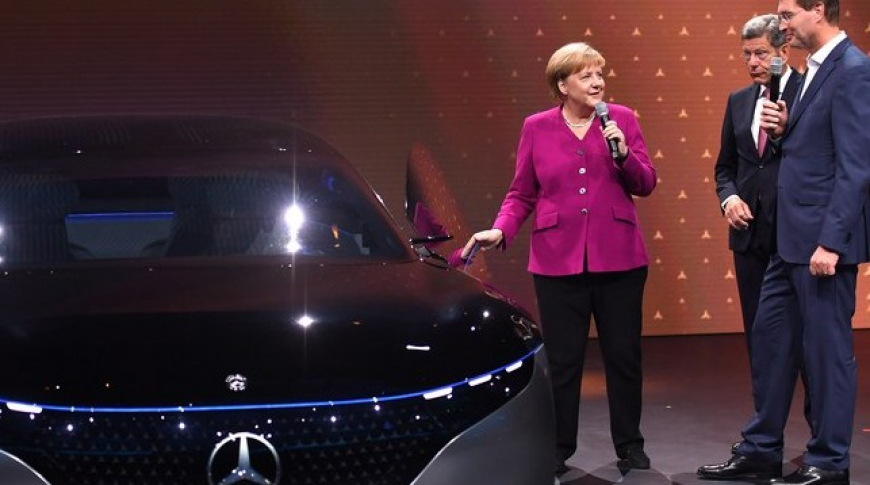
German Chancellor Angela Merkel (L) talks with Ola Kaellenius (R), CEO of Daimler, at the International Motor Show (IAA) 2019 in Frankfurt, Germany, Sept. 12, 2019.
GENEVA, 8 December (BelTA – Xinhua) – Ola Kaellenius, chief executive officer (CEO) of Daimler, told Xinhua the German automaker is eyeing new opportunities in China’s rapidly growing market for electric cars thanks to the Asian country’s economic recovery and the brisk demand for new energy vehicles in the world’s largest auto market.
The Stuttgart-based company founded by Carl Benz, who patented the first gasoline-powered car in 1886, has recently shifted gears towards electric vehicles (EVs).
“We have made a clear strategic decision for Daimler and for Mercedes-Benz that the future of premium luxury mobility will be CO2-neutral. We are on this path towards emission-free driving, and China as our biggest market will play a big role in this,” Kaellenius said in a recent interview on the sidelines of the Web Summit, an annual gathering of tech leaders and entrepreneurs in Lisbon, the capital of Portugal, which was held virtually this year.
“In the next three years, we will industrialize several electric vehicles in China but not just fully battery electric vehicles, also plug-in hybrids with a good range,” he said.
As concerns over climate change have been rising, China has become both the largest manufacturer and buyer of EVs in the world and currently accounts for more than half of all electric cars.
To meet new demand generated by green consumption, the State Council, China’s cabinet, approved a plan in early October to boost the new energy vehicle (NEV) industry.
The country has also made a “great leap” in all-electric vehicles with Elon Musk’s Tesla, which rolled out the Model 3 from its Gigafactory near Shanghai in January.
Asked about the impact from COVID-19, Kaellenius said the business was gathering steam again: “This year, for the first nine months, we were already year-to-date more than 8 percent up despite the fact that we had the lockdown and the effect on the market in February and in March. “
“This is a strong year in this unusual year already in 2020. We want to take that momentum into 2021. We feel cautiously optimistic about 2021 in China,” he said.
Daimler, which has a joint venture with China’s state-owned Beijing Automobile Group Co. Ltd. (BAIC), sold around 700,000 passenger cars in China last year. This compares to the German firm’s second-largest home market, where it sold between 360,000 and 370,000 cars during the same period.
Kaellenius said that China’s economic recovery from the pandemic has also helped the German luxury car manufacturer pick up speed.
